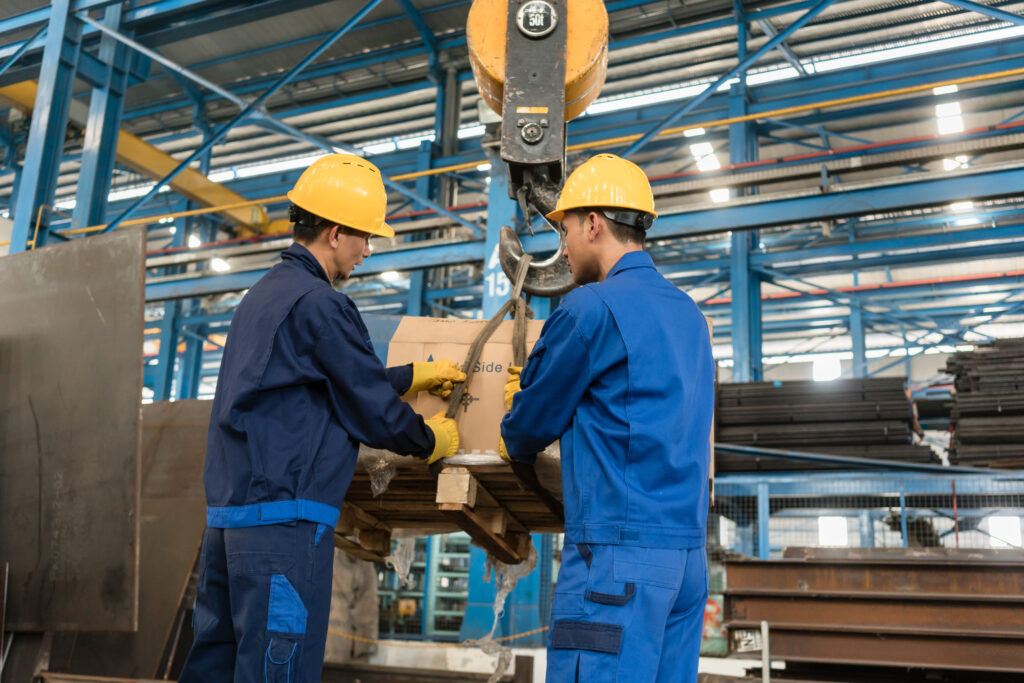Material handling dealers are no strangers to adversity. But 2025 is shaping up to be a different beast altogether. From supply chain disruptions and inflationary pressure to skilled labor shortages and shifting customer expectations, the strain on dealer operations is undeniable. And yet, some are not just surviving—they’re thriving.
How? By rethinking the fundamentals of how they run their businesses. In this era of compounding uncertainty, resilience isn’t just about reacting quickly. It’s about building a business that anticipates change, responds with agility, and leverages technology, talent, and insight to unlock growth opportunities.
This blog unpacks the top strategies forward-thinking dealers are using to thrive despite the headwinds.
1. The Pressure is Real: What’s Shaping Dealer Reality in 2025
Inflation, interest rates, global instability, and rising energy costs are converging to squeeze dealer margins. Meanwhile, 91% of operations leaders report the need to overhaul their supply chain strategies due to macroeconomic and geopolitical pressures. For many material handling dealers, this isn’t just a financial strain—it’s an existential one.
Customers are demanding faster turnarounds, better transparency, and higher uptime. Dealers are caught between OEM expectations and real-world operational constraints. And with supply chain volatility and labor gaps, even the most reliable workflows are being tested daily.
But here’s the good news: Uncertainty is also a forcing function. It’s pushing dealers to modernize, differentiate, and future-proof their operations in ways that create lasting advantage.
2. Uptime is the New Differentiator
In a margin-tight market, uptime isn’t just a service metric—it’s a revenue engine. Customers are leaning more on their dealer partners to prevent downtime and keep operations running smoothly. That means predictive maintenance, real-time service visibility, and proactive support are no longer optional. They’re expected.
Dealers with robust service models—enabled by technology—are winning more business and building longer-term loyalty. This includes:
- Mobile-first field service solutions
- Real-time equipment diagnostics
- Automated maintenance scheduling
- Customer self-service portals
These aren’t bells and whistles. They’re part of an uptime-first culture that sets leading dealers apart. And in a world where every minute of downtime costs a customer money, it’s one of the most valuable differentiators you can offer.
3. Visibility is the Antidote to Chaos
Supply chain unpredictability is one of the top pain points for dealers today. Late shipments, missing parts, and opaque vendor communication all add friction to the process. The more disconnected your systems, the harder it is to respond when (not if) things go sideways.
That’s why leading dealers are investing in integrated platforms that bring sales, parts, service, and inventory data into a single source of truth. This level of visibility makes it easier to:
- Predict inventory shortfalls
- Reroute parts based on demand
- Streamline internal workflows
- Make confident decisions in real time
Visibility reduces the guesswork and allows teams to act with confidence. The result? Greater speed, smarter decisions, and fewer surprises.
4. Tech Isn’t a Tool—It’s a Growth Strategy
For too long, many dealerships have seen technology as an expense. But in 2025, it’s time to reframe that thinking. Technology isn’t a line item on a budget—it’s your business strategy in action.
Forward-thinking dealers are:
- Embracing cloud-based ERPs to scale more flexibly
- Automating low-value tasks to free up staff
- Using AI to optimize parts planning and technician routing
- Integrating mobile tools to keep teams connected
The dealers that thrive in uncertainty are the ones that treat technology as a core competency. They’re not buying software. They’re investing in capability.
5. People Power: Investing in the Workforce of the Future
Aging workforces and talent shortages are reshaping how dealers think about people. As experienced technicians retire, attracting and retaining next-gen talent becomes critical.
Winning dealers are doubling down on:
- Modern training programs
- Upskilling through tech tools
- Internal career pathing
- Creating a culture of purpose and pride
Just as important: aligning the employee experience with the customer experience. When your team is engaged, empowered, and connected—your customers feel it.
6. Resilience Through Partnership
In a fragmented, high-pressure environment, partnerships are a strategic asset. Dealers can no longer go it alone. Strategic alignment with OEMs, technology providers, and logistics partners is key to building a more adaptable, efficient business.
The right partnerships don’t just bring tools—they bring expertise, perspective, and shared accountability. When the unexpected hits, having those trusted allies makes all the difference.
Thriving, Not Just Surviving
Uncertainty isn’t going away. But for material handling dealers who are ready to challenge legacy assumptions, invest in visibility, modernize their tech stack, and double down on their people, 2025 offers tremendous upside.
At VitalEdge, we believe resilient dealers will be the ones who lead the industry forward. That’s why we’re committed to helping material handling businesses modernize every layer of their operations—with connected platforms, deep industry expertise, and a partner-first mindset.
Want to learn how we can help you unlock resilience and growth? Let’s talk.
About the Author

Jeff Spencer is a Sales Executive at VitalEdge Technologies, where he helps dealerships modernize operations and drive growth through the e-Emphasys platform. With over 17 years of experience in the heavy equipment industry, Jeff brings deep expertise in business development, account management, and consultative sales.
Throughout his career, Jeff has worked closely with large enterprise accounts to analyze workflows, identify process improvements, and deliver solutions that generate real ROI. He’s skilled at building strong relationships at every level—from frontline teams to C-suite decision makers—and is passionate about helping clients succeed through smart, scalable technology.
